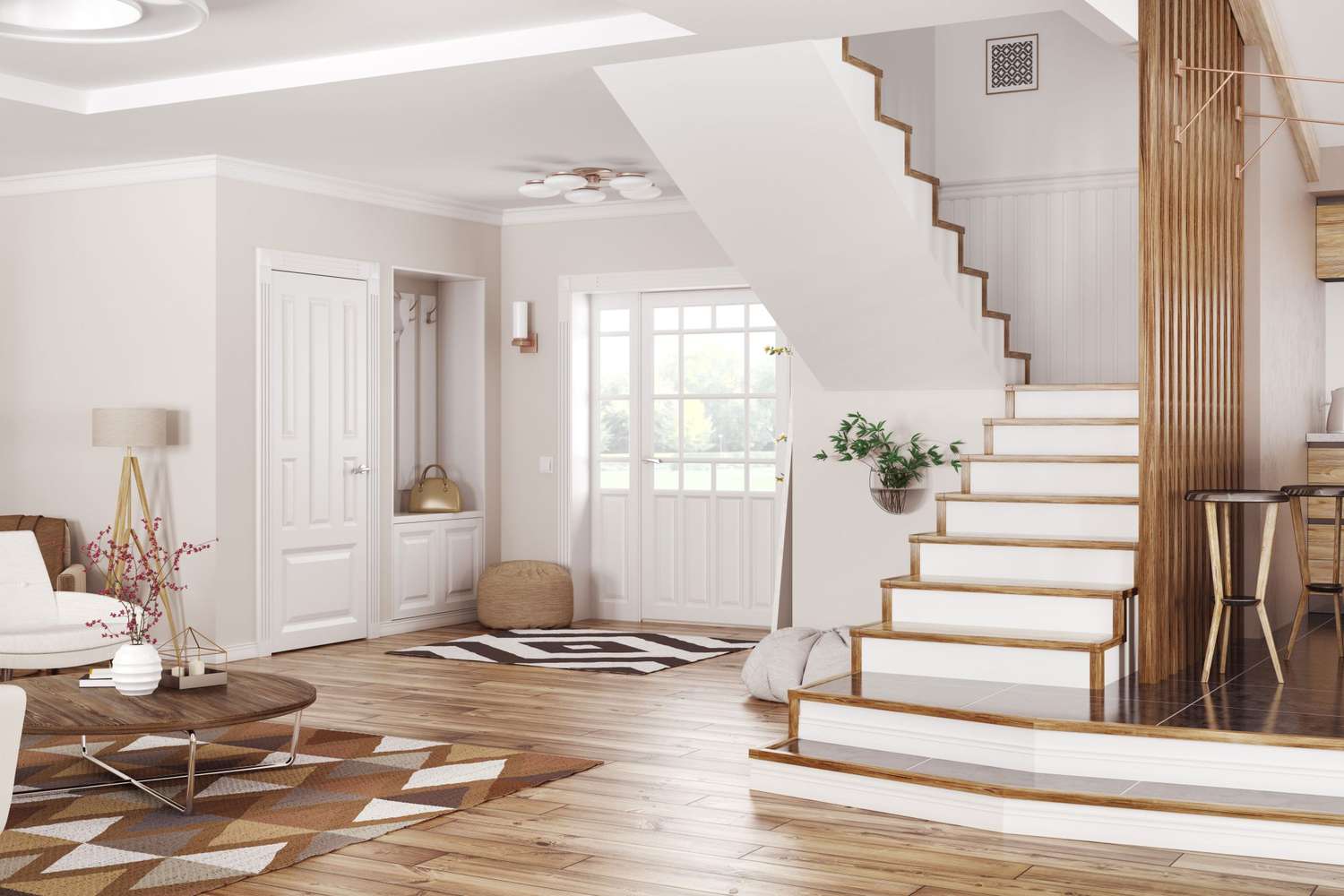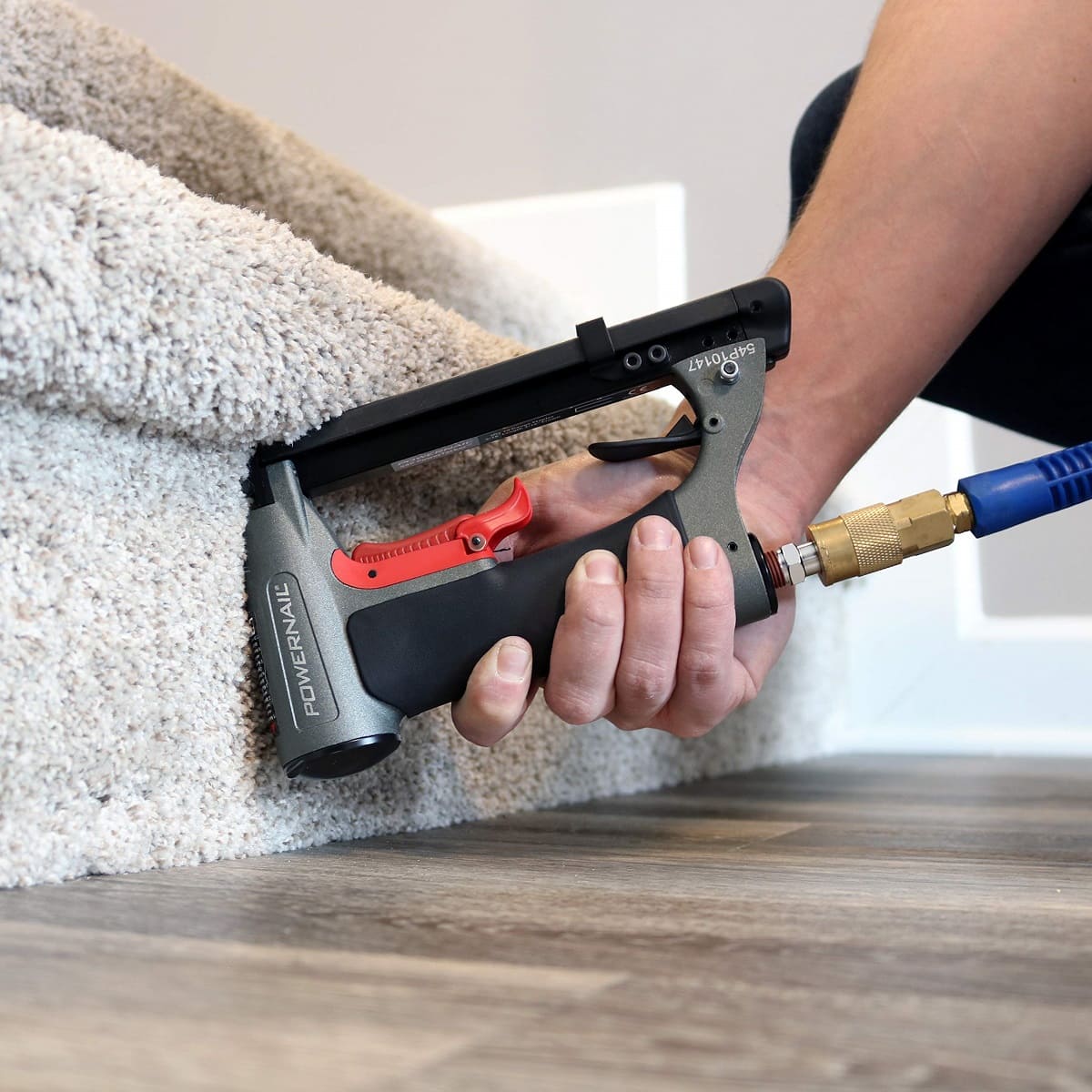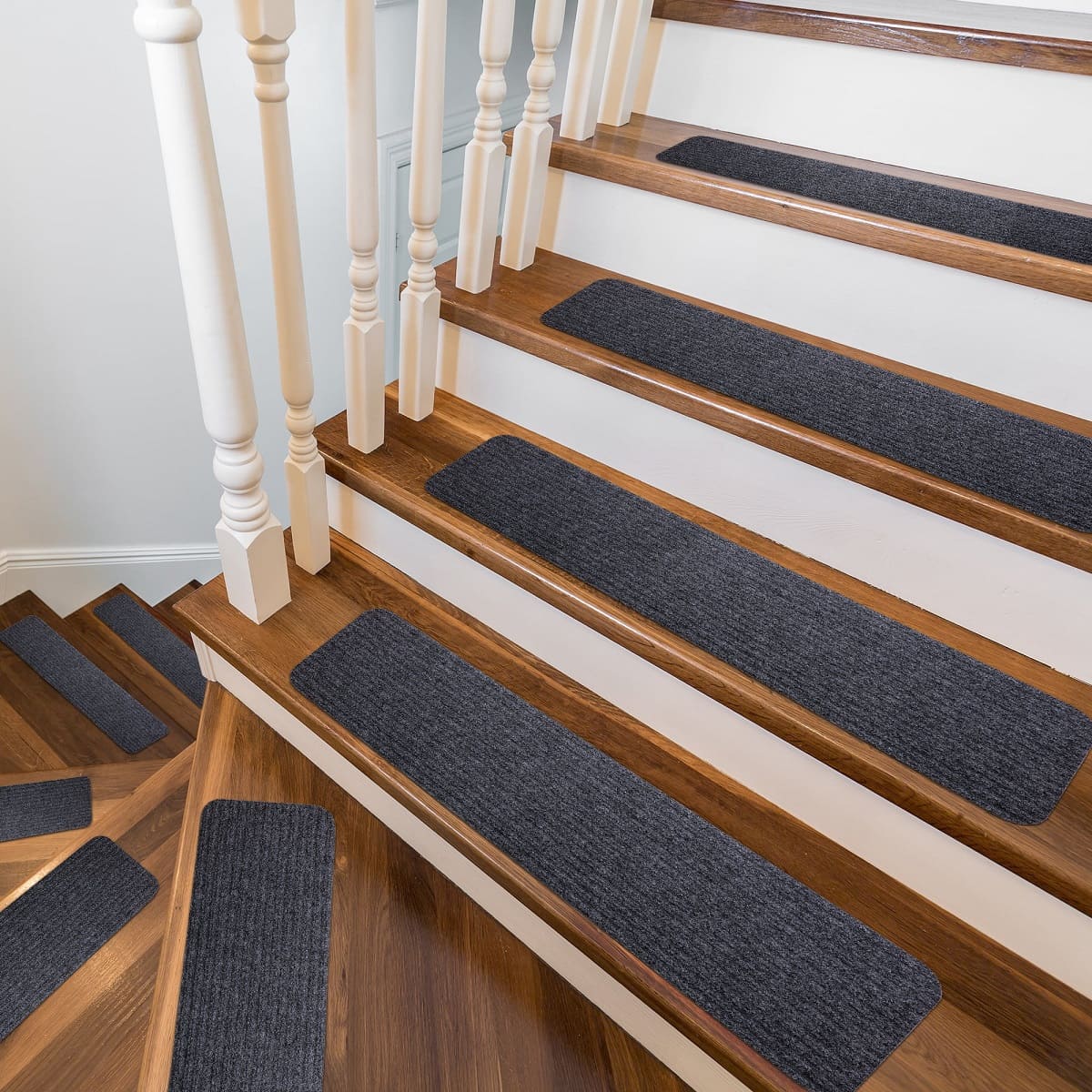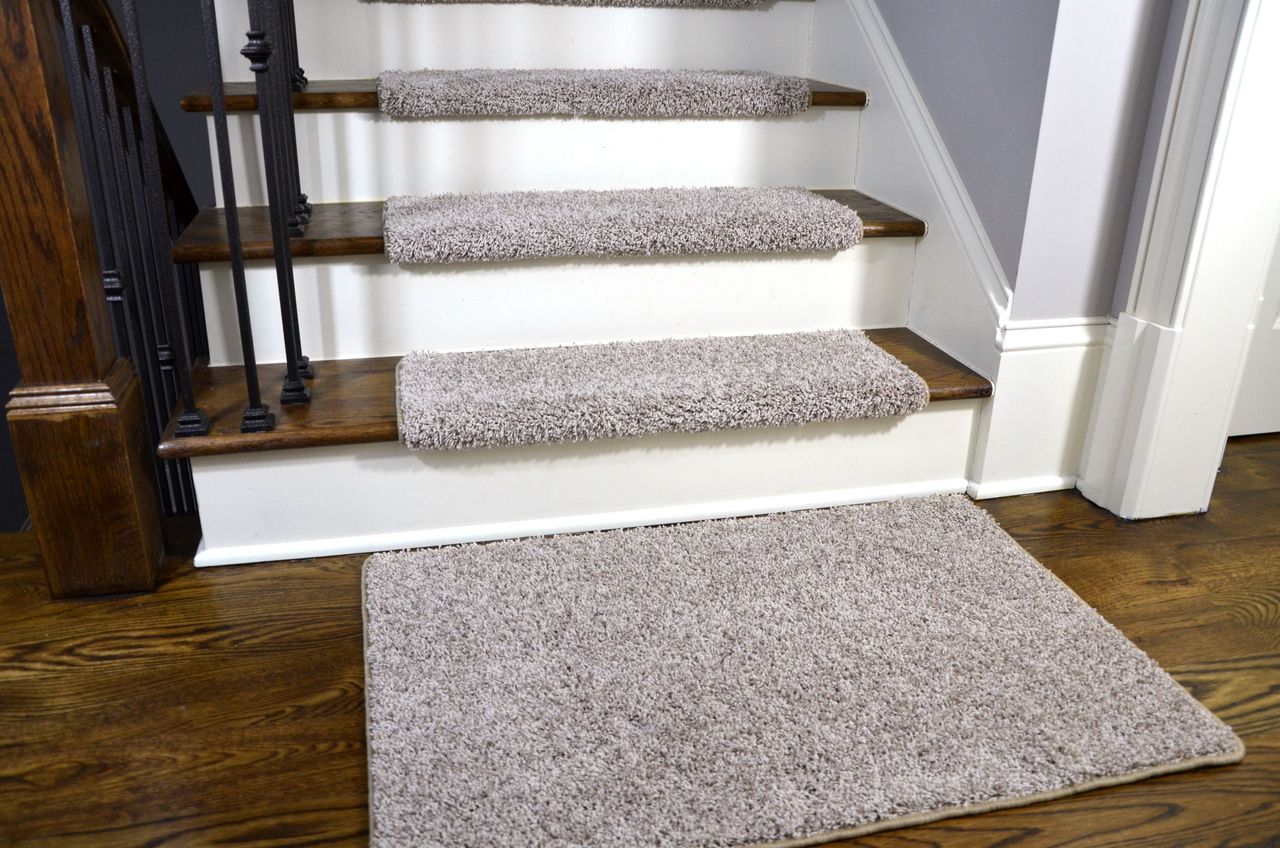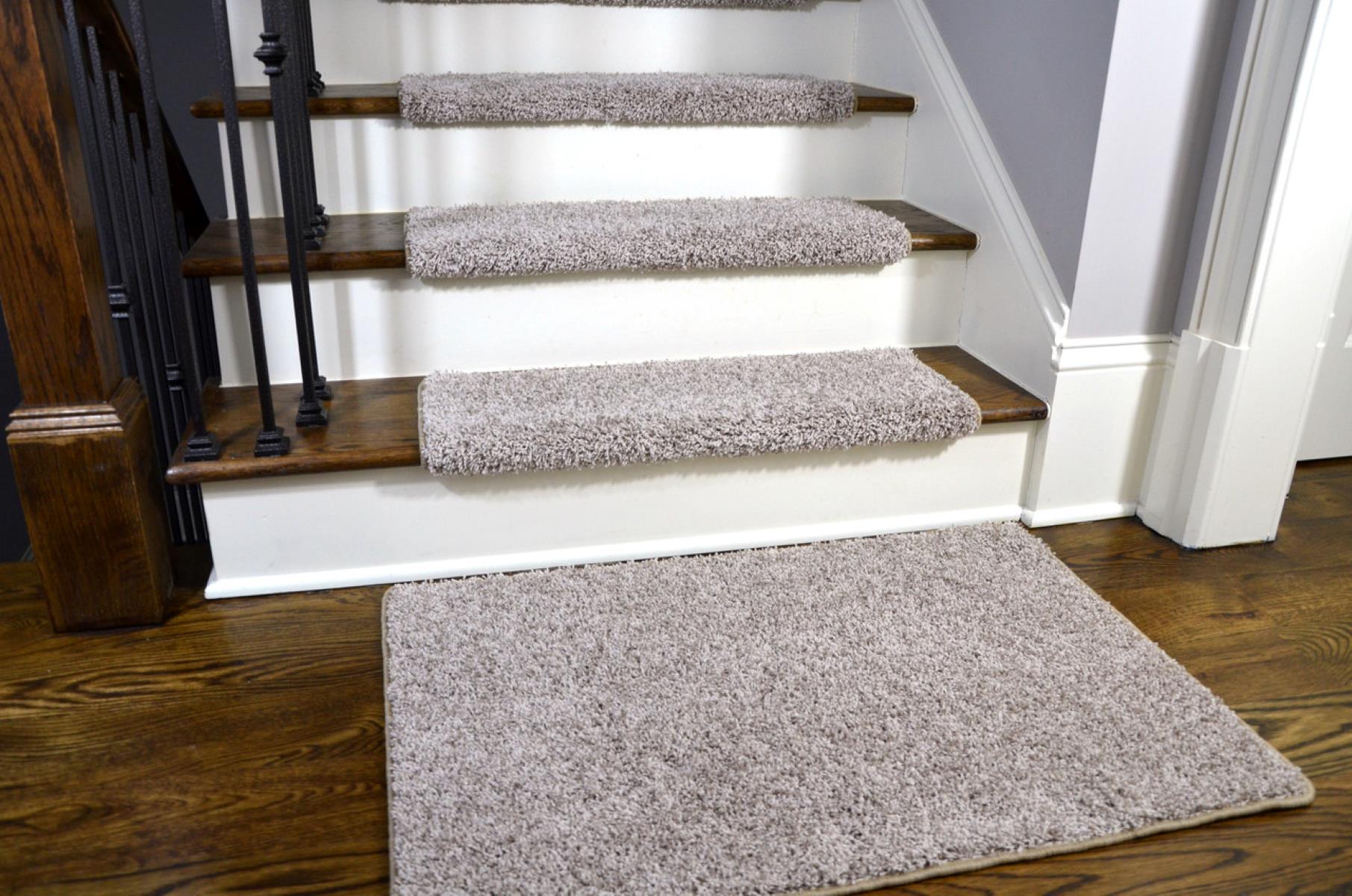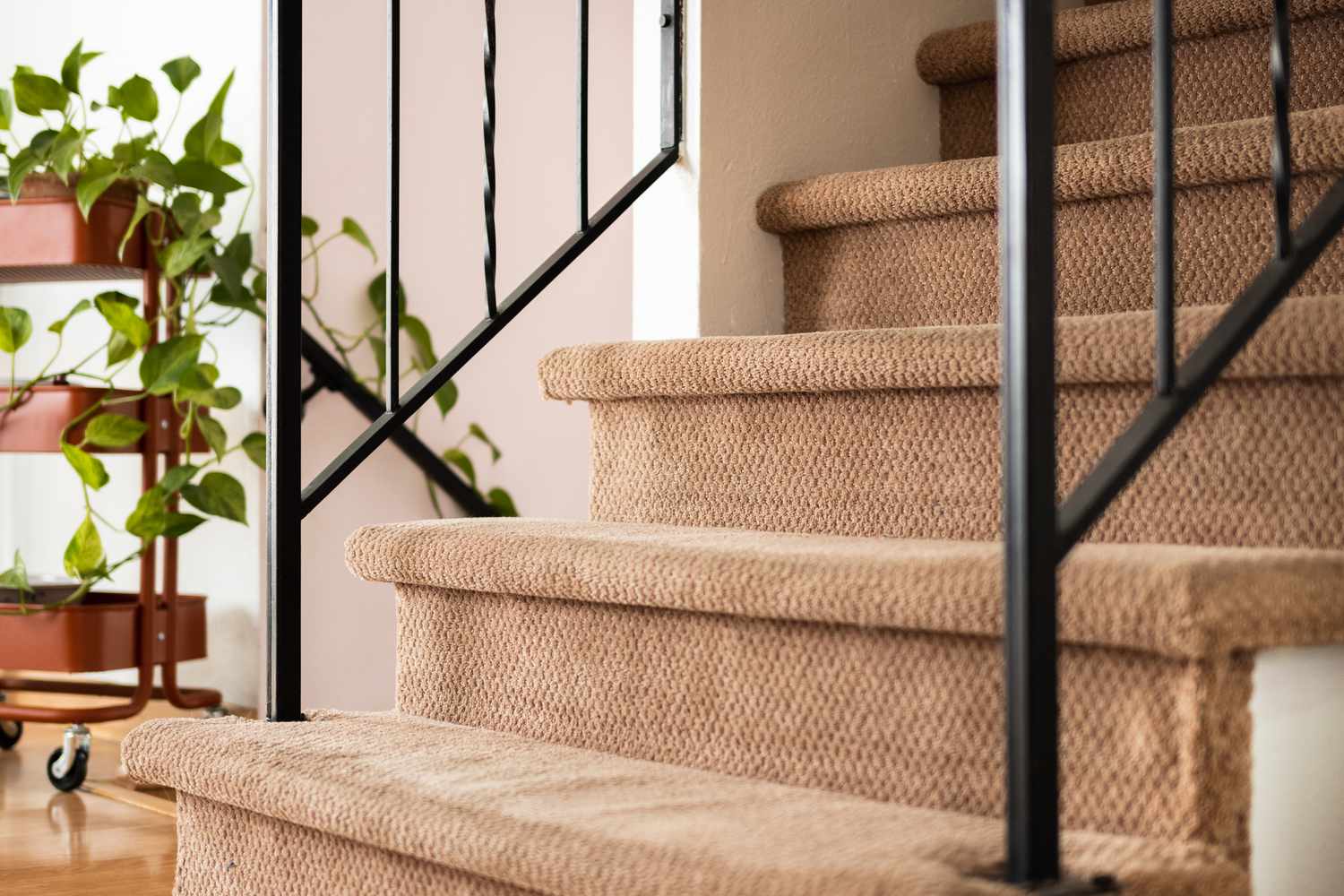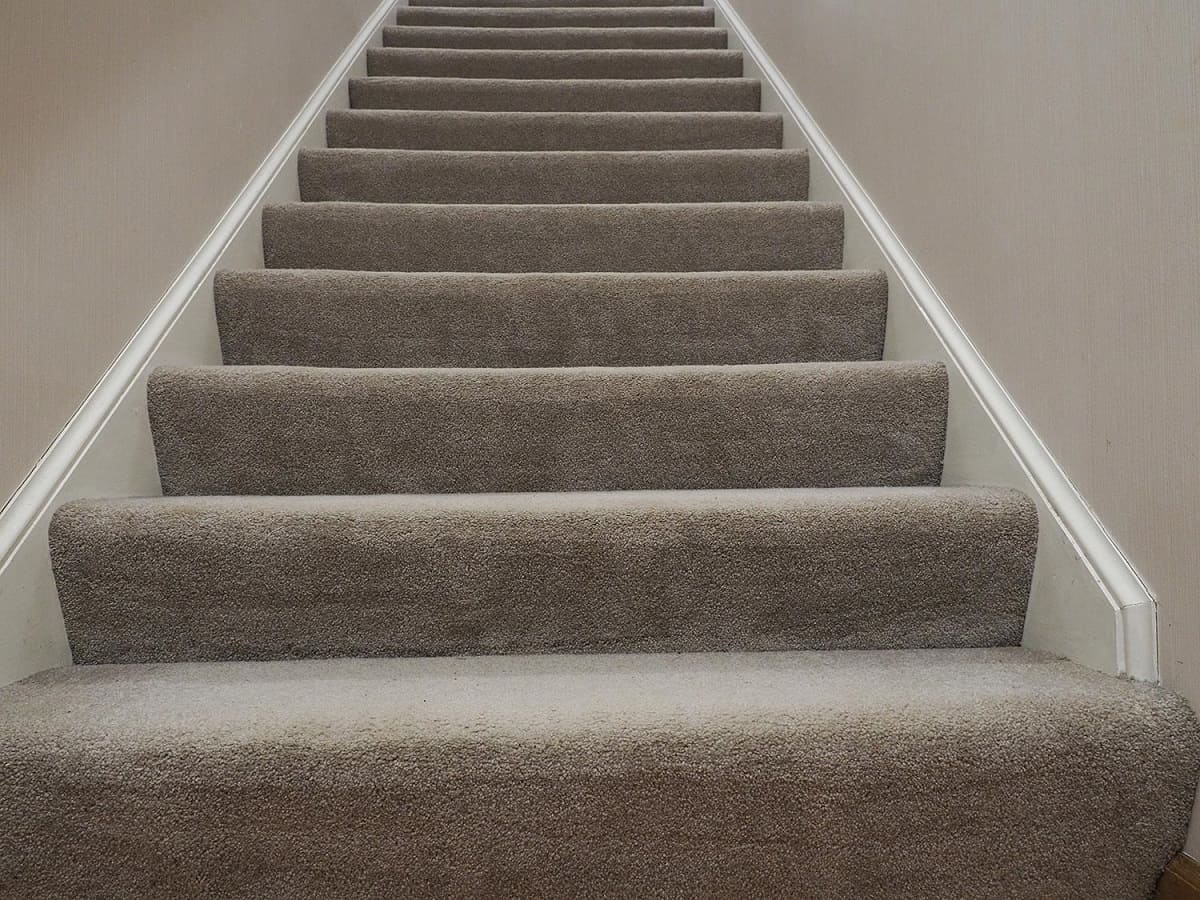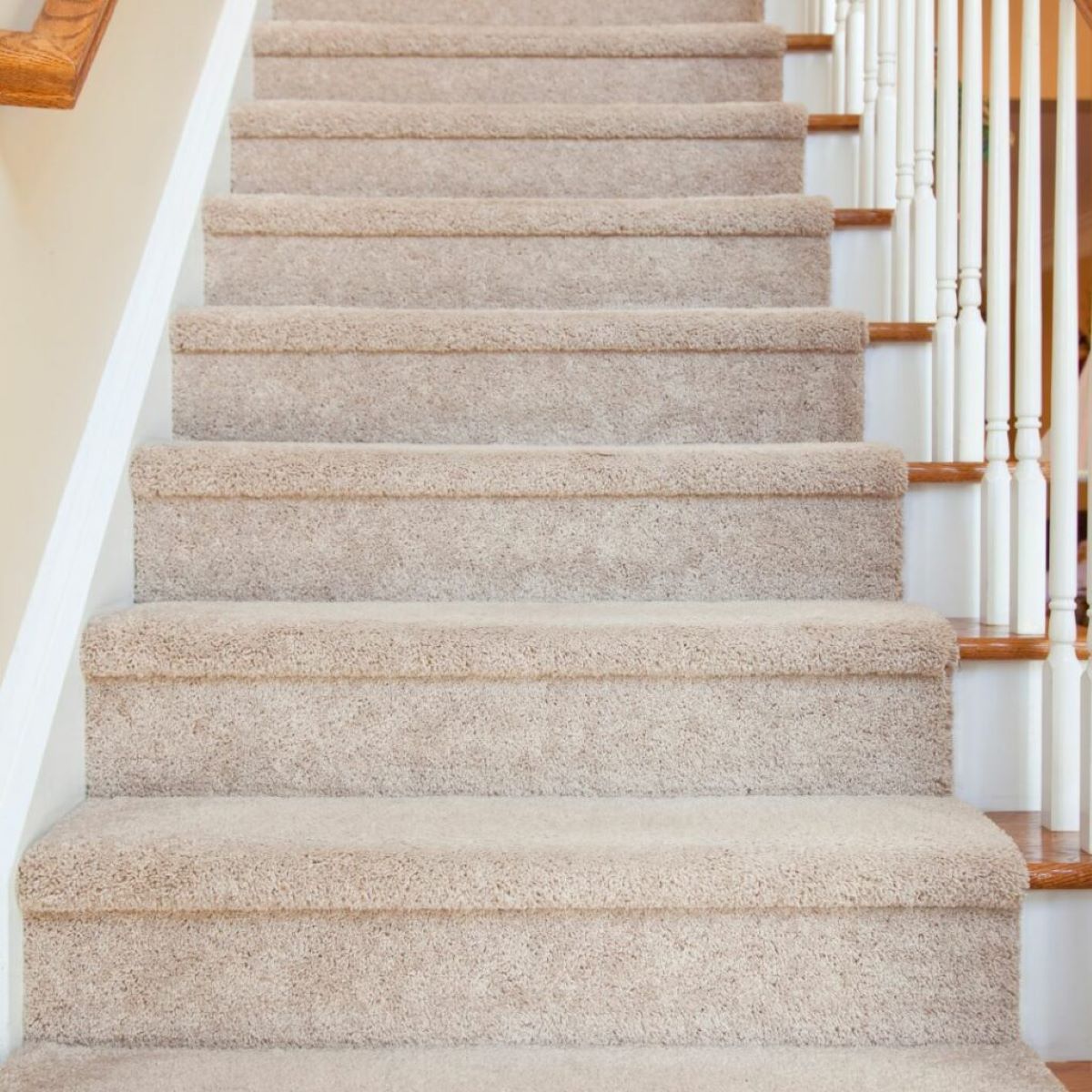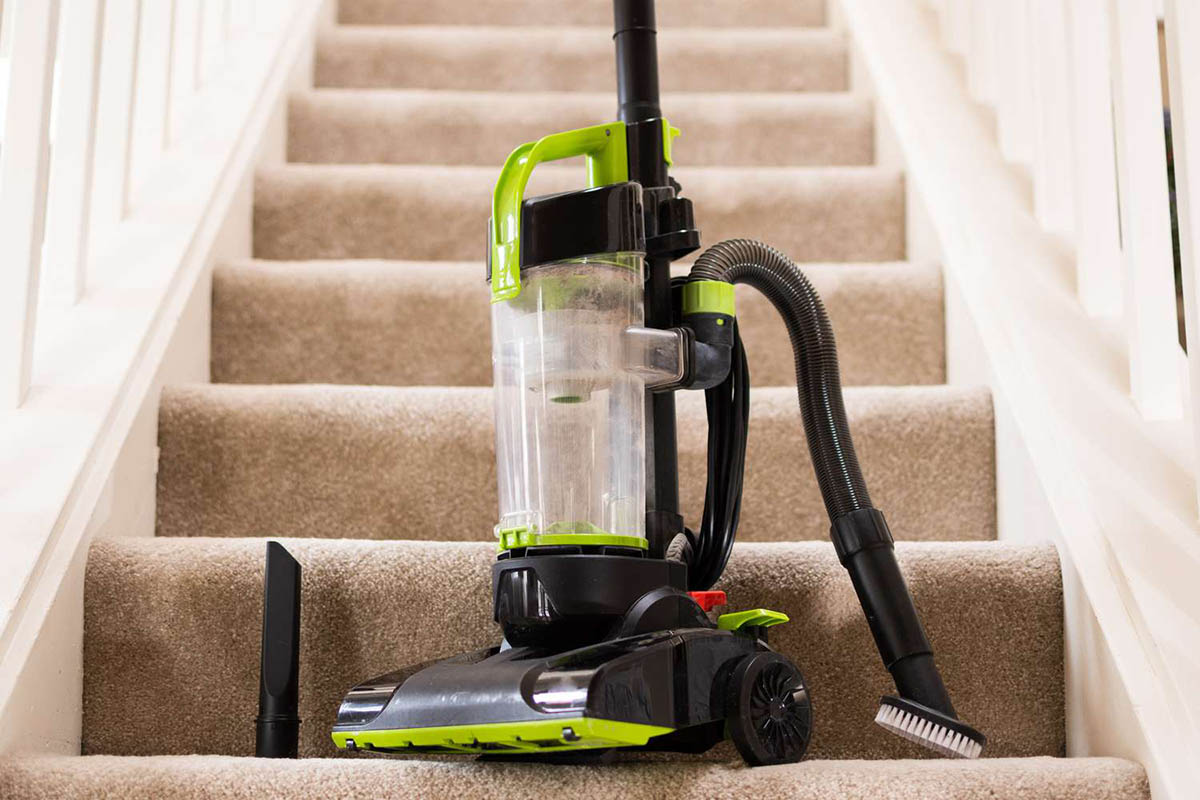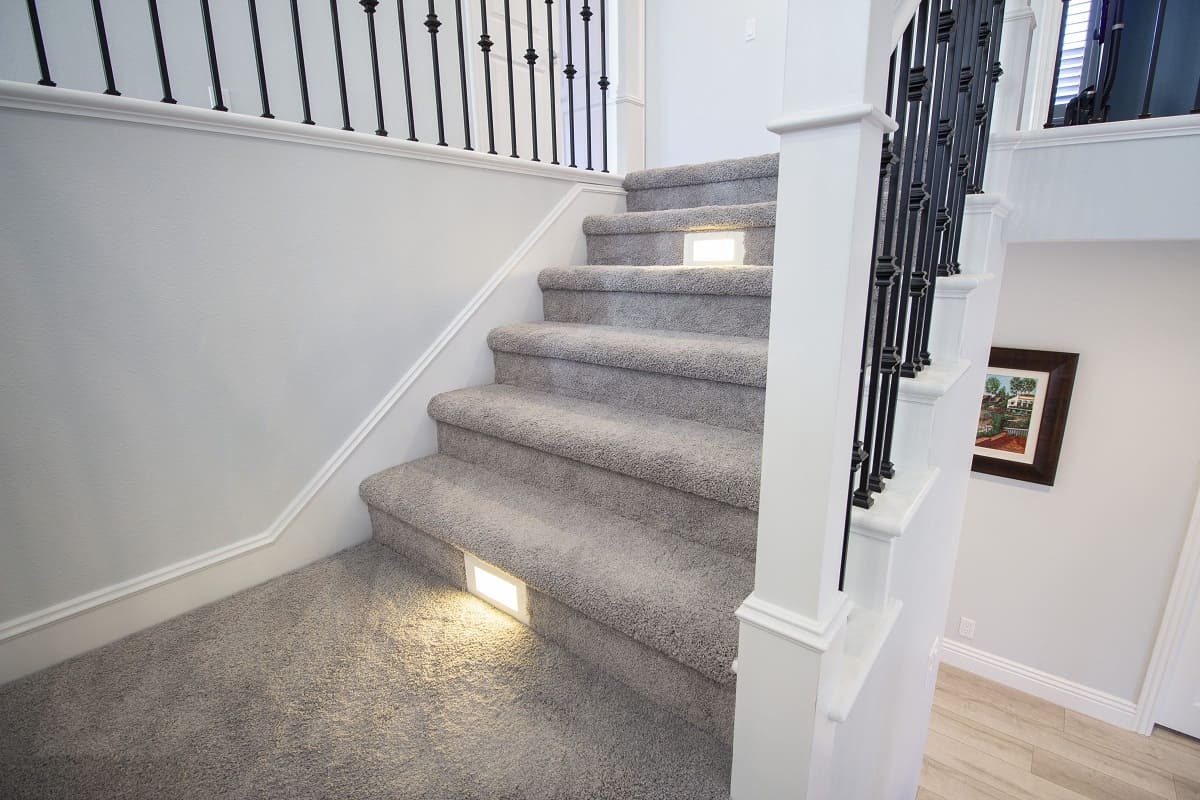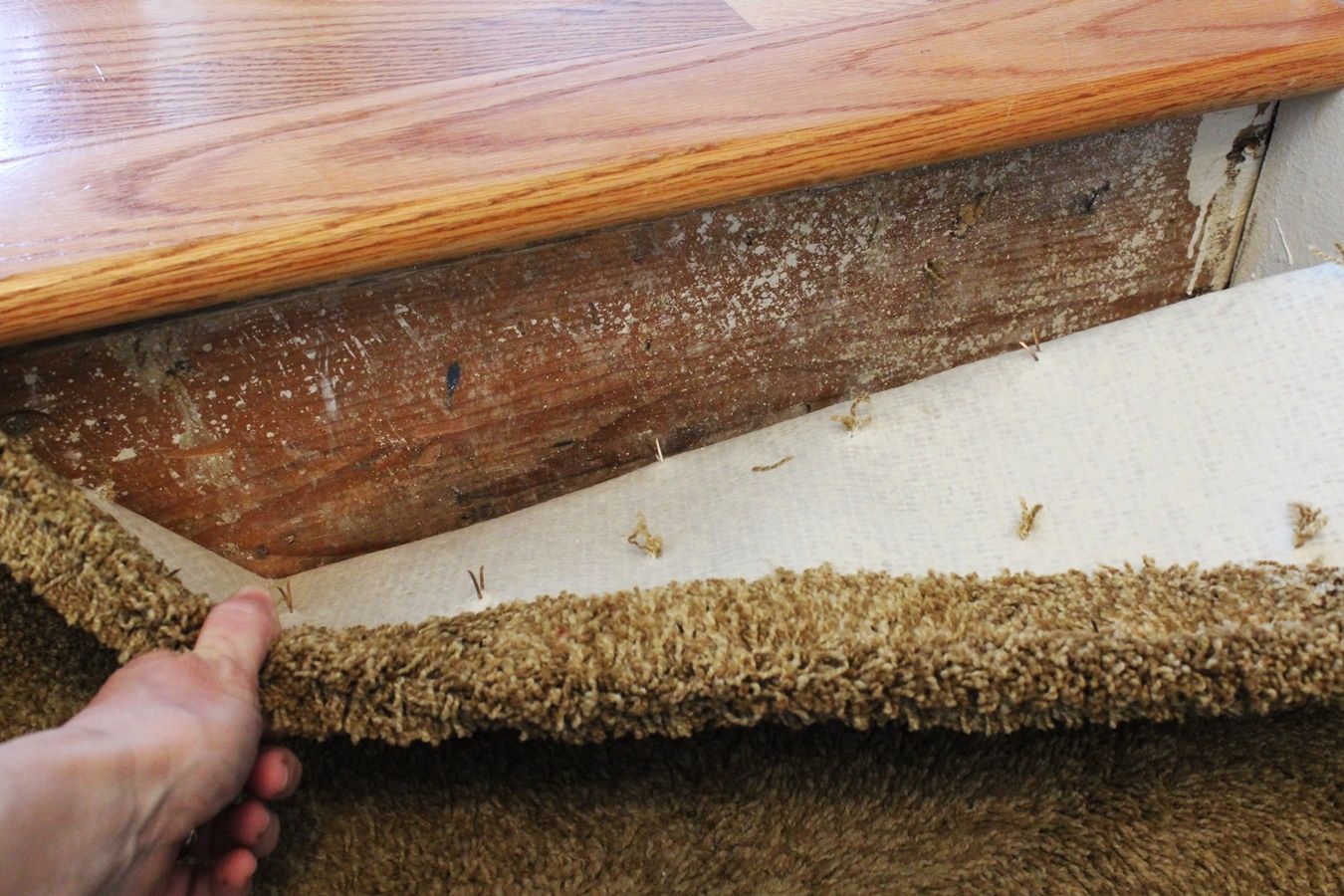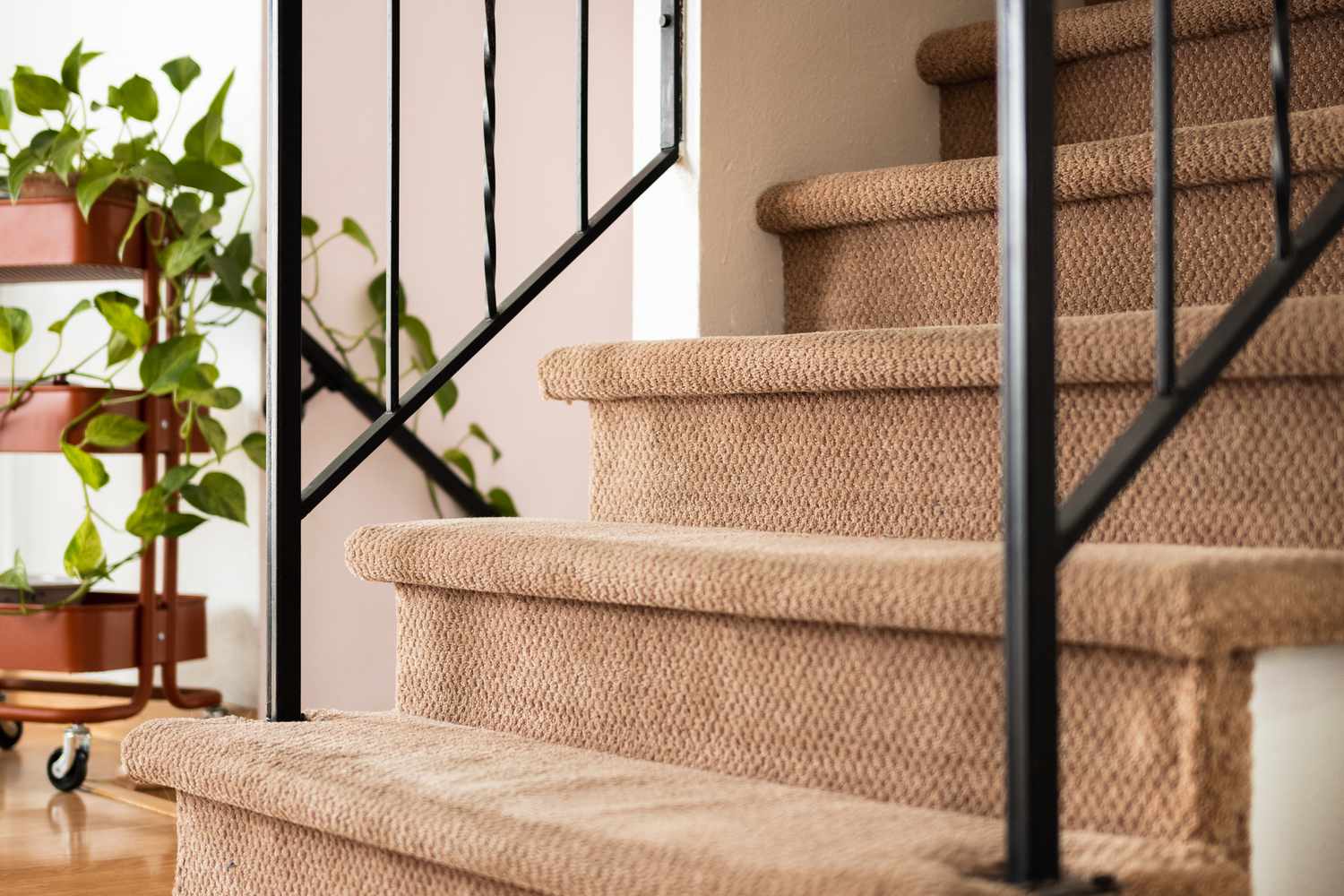

Articles
What Type Of Carpet Is Best For Stairs
Modified: October 20, 2024
Looking for articles on what type of carpet is best for stairs? Discover expert advice and tips to choose the perfect carpet for your staircase.
(Many of the links in this article redirect to a specific reviewed product. Your purchase of these products through affiliate links helps to generate commission for Storables.com, at no extra cost. Learn more)
Introduction
Choosing the right carpet for stairs is a crucial decision when it comes to both aesthetics and functionality. Unlike other areas of your home, stairs experience regular foot traffic, making it essential to select a carpet that can withstand constant use and maintain its appearance over time. In this article, we will explore the factors to consider when choosing carpet for stairs and the different types of carpet available to help you make an informed decision.
When selecting carpet for stairs, there are several factors to take into account. Firstly, durability is paramount. Stairs endure a significant amount of wear and tear, so it’s crucial to choose a carpet material that can withstand heavy foot traffic and resist crushing and matting. Secondly, traction is essential for safety. Stairs can be slippery, especially if the carpet material is smooth or lacks grip. Opting for a carpet with good traction is vital to prevent accidents and ensure a secure footing.
Another crucial factor to consider is maintenance and cleaning. Stairs are prone to accumulating dirt, debris, and stains, so selecting a carpet that is easy to clean and maintain can significantly reduce the hassle and extend its lifespan. Additionally, the overall style and design of the carpet should complement your home’s aesthetic and personal preferences. With these considerations in mind, let’s explore the different types of carpet suitable for stairs and their pros and cons.
Key Takeaways:
- Choose the best carpet for your stairs by considering factors like durability, stain resistance, and budget. Each type of carpet has unique pros and cons, so make an informed decision based on your specific needs and preferences.
- Whether it’s the affordability of polyester, the durability of nylon, the luxury of wool, the versatility of olefin, or the eco-friendliness of triexta, there’s a perfect carpet for your stairs. Balance functionality, aesthetics, and maintenance to make the right choice.
Read more: What Carpet Is Best For Stairs?
Factors to Consider When Choosing Carpet for Stairs
Choosing the right carpet for your stairs involves considering several key factors to ensure you make the best decision for your home. Let’s take a closer look at these factors:
- Durability: Stairs are high-traffic areas that endure constant foot traffic, so it’s crucial to select a carpet that can withstand the wear and tear. Look for a carpet with high durability ratings, such as those designed for heavy residential use.
- Traction: Safety is paramount when it comes to stairs. Opt for a carpet with good traction to prevent slips and falls. Carpets with low pile heights or textured surfaces provide better grip and stability.
- Maintenance: Stairs are prone to collecting dirt, debris, and stains. Consider the ease of cleaning and maintenance when selecting a carpet. Stain-resistant materials or carpets that can be easily spot cleaned will save you time and effort in the long run.
- Style and Aesthetic: The carpet you choose should complement the overall style and aesthetic of your home. Consider the color, pattern, and texture of the carpet to ensure it enhances the visual appeal of your staircase and blends seamlessly with the rest of your decor.
- Budget: Carpet prices vary depending on the type of material and quality. Consider your budget when choosing a carpet for your stairs. While it’s important to find a carpet that meets your needs, it’s also essential to find one that fits within your budget.
By considering these factors, you can make a more informed decision when choosing carpet for your stairs. Next, let’s explore the different types of carpet that are suitable for stairs.
Types of Carpet Suitable for Stairs
When it comes to selecting carpet for stairs, there are various options available, each with its own unique characteristics. Let’s explore the different types of carpet that are suitable for stairs:
- Polyester Carpet: Polyester carpet is a popular choice for stairs due to its affordability and resistance to fading. It is also known for its soft texture and vibrant color options. However, polyester carpet may not be as durable as some other materials and may flatten over time with heavy use.
- Nylon Carpet: Nylon is one of the most durable carpet materials available, making it an excellent choice for stairs. It is resistant to wear and tear, stains, and crushing. Nylon carpet is also available in a wide range of colors and styles, allowing for versatility in matching your home’s decor. While it may be slightly more expensive than other options, its durability and longevity make it a worthwhile investment.
- Wool Carpet: Wool is a natural fiber known for its luxurious feel and durability. Wool carpet is highly resistant to crushing and retains its appearance well over time. It also has natural stain-resistant properties and is available in a variety of colors and textures. However, wool carpet tends to be more expensive than synthetic options.
- Olefin Carpet: Olefin, also known as polypropylene, is a synthetic fiber that is resistant to stains, moisture, and fading. It is a cost-effective option for stairs and is available in a wide range of styles and colors. However, olefin carpet may not be as durable as nylon or wool and can be prone to matting in high-traffic areas.
- Triexta Carpet: Triexta is a newer synthetic fiber that offers excellent stain resistance and durability. It has a soft and luxurious feel similar to that of nylon, making it a comfortable choice for stairs. Triexta carpet also has good color retention and resists fading. While it may have a higher price point, its performance characteristics make it a viable option for stairs.
Consider the specific needs of your staircase, such as the level of foot traffic and your budget, when selecting the type of carpet that is most suitable for your stairs. Now that we have explored the types of carpet available, let’s delve into the pros and cons of each to help you make an informed decision.
Polyester Carpet
Polyester carpet is a popular choice for stairs due to its affordability and aesthetic appeal. It offers a soft texture that feels comfortable underfoot and comes in a wide array of colors and styles to suit any decor. However, there are both advantages and disadvantages to consider before choosing polyester carpet for your stairs.
Pros of Polyester Carpet:
- Affordability: Polyester carpet is generally more budget-friendly compared to other carpet materials, making it an attractive option for those on a tight budget.
- Color Fastness: Polyester fibers are known for their excellent color retention, which means the carpet will remain vibrant and resistant to fading over time.
- Stain Resistance: Polyester carpet has inherent stain-resistant properties, making it easier to clean and maintain. It is also less prone to absorbing spills and stains compared to some other carpet materials.
- Soft Texture: Polyester fibers are naturally soft, providing a plush and comfortable feel underfoot. This can add an extra level of comfort to your stairs.
Cons of Polyester Carpet:
- Durability: While polyester carpet is soft and comfortable, it may not be as durable as some other carpet materials, especially in high-traffic areas like stairs. It is more prone to crushing and matting over time, which can detract from its appearance.
- Less Resilient: Polyester fibers have a lower resilience compared to materials like nylon, meaning they may not bounce back as well from heavy foot traffic or furniture impressions.
- Static Buildup: Polyester carpet has a tendency to generate static electricity, which can be a nuisance and cause discomfort, particularly during the dry winter months. However, anti-static treatments can help mitigate this issue.
- Less Eco-Friendly: Polyester is a synthetic material derived from non-renewable resources, so it may not be the most environmentally friendly choice compared to natural fiber options like wool. However, some brands offer eco-friendly and recycled polyester options.
When considering polyester carpet for your stairs, weigh the advantages and disadvantages to determine if it meets your specific needs and preferences. Remember to take into account the level of foot traffic your stairs experience and the durability required for long-term performance. In the next section, we will explore the pros and cons of nylon carpet for stairs.
Nylon Carpet
Nylon carpet is a popular choice for stairs due to its exceptional durability and resilience. It is known for its ability to withstand heavy foot traffic and maintain its appearance for an extended period. When considering nylon carpet for your stairs, it’s important to weigh the pros and cons to make an informed decision.
Pros of Nylon Carpet:
- Durability: Nylon carpet is highly durable and able to withstand the rigors of constant foot traffic. It is resistant to crushing, matting, and wear, making it an excellent choice for stairs.
- Resilience: Nylon fibers have excellent resilience and can bounce back after being compressed by foot traffic or furniture. This ensures that your carpet maintains its plush and attractive appearance for a long time.
- Stain Resistance: Many nylon carpets have built-in stain-resistant treatments, making them easier to clean and maintain. They are more resistant to spills, stains, and dirt compared to other carpet materials.
- Wide Range of Colors and Styles: Nylon carpets offer a vast selection of colors, patterns, and textures, allowing you to find the perfect look for your stairs that complements your overall decor and personal style.
- Versatility: Nylon carpet is versatile and can be used in various areas of your home, not just on the stairs. It is suitable for high-traffic rooms, such as hallways and living areas, providing consistent durability and performance throughout.
Cons of Nylon Carpet:
- Cost: Nylon carpet tends to be more expensive compared to other carpet materials, especially high-quality options. However, its durability and longevity can justify the initial investment in the long run.
- Potential for Static: Nylon fibers can generate static electricity, particularly in low-humidity environments. However, anti-static treatments or the use of a humidifier can help alleviate this issue.
- Prone to Absorbing Water: Untreated nylon carpet can absorb water and liquid spills, which may lead to mold or mildew growth. However, modern nylon carpets often have moisture-resistant properties or stain-resistant treatments to combat this issue.
- Sensitivity to Sunlight: Some nylon carpets may be prone to fading when exposed to direct sunlight for extended periods. Consider UV-resistant options or use window treatments to minimize sun damage.
Overall, nylon carpet is an excellent choice for stairs due to its durability, resilience, and stain resistance. It is a long-lasting option that can handle heavy foot traffic and maintain its appearance over time. Consider your budget, desired aesthetics, and maintenance requirements to determine if nylon carpet is the right fit for your stairs. Next, we will explore the pros and cons of wool carpet.
Read more: What Carpet Is Best For Stairs
Wool Carpet
Wool carpet is a luxurious and natural option that offers both beauty and durability. It is renowned for its softness, insulation properties, and ability to add elegance to any space. When considering wool carpet for your stairs, it’s important to understand the advantages and disadvantages to make an informed decision.
Pros of Wool Carpet:
- Durability: Wool carpet is exceptionally durable and can withstand heavy foot traffic, making it an ideal choice for stairs. It is resistant to crushing and maintains its appearance over time.
- Natural Insulation: Wool is a natural insulator, providing thermal and acoustic benefits to your home. It helps to regulate temperature, keeping your stairs warm and reducing noise levels.
- Soft and Luxurious: Wool fibers are naturally soft and luxurious, providing a comfortable and plush feel underfoot. Walking on wool carpet on the stairs can add a touch of luxury to your home.
- Naturally Stain-Resistant: Wool has inherent stain-resistant properties, making it easier to clean and maintain. It is naturally resistant to dirt and grime, allowing spills to be easily blotted up before they can stain.
- Environmentally Friendly: Wool is a sustainable and renewable resource, making it an environmentally-friendly choice for those seeking eco-conscious options. It is biodegradable and can be recycled at the end of its life.
Cons of Wool Carpet:
- Cost: Wool carpet is generally more expensive compared to synthetic options such as polyester or nylon. However, its durability and luxurious feel can offset the higher initial investment.
- Prone to Fading: Wool carpet is susceptible to fading when exposed to direct sunlight over time. Using window treatments or UV-resistant coatings can help mitigate this issue.
- Moisture Absorption: Wool has a natural tendency to absorb moisture quickly, which can lead to mold or mildew growth if not promptly addressed. However, regular cleaning and prompt drying can prevent these issues.
- Requires Regular Maintenance: Wool carpet may require more maintenance compared to synthetic options. Regular vacuuming and professional cleaning are necessary to keep it looking and performing its best.
Considering the luxurious feel, durability, and natural properties of wool carpet, it can be a fantastic choice for stairs, especially for those looking for a high-end and eco-friendly option. Evaluate your budget, maintenance capabilities, and desired aesthetic to determine if wool carpet is the right fit for your home. In the next section, we will explore the pros and cons of olefin carpet.
Olefin Carpet
Olefin carpet, also known as polypropylene, is a synthetic carpet material that offers a combination of affordability, stain resistance, and versatility. It is commonly used in high-traffic areas, including stairs. Before selecting olefin carpet for your stairs, it’s important to understand the pros and cons associated with this type of carpet.
Pros of Olefin Carpet:
- Affordability: Olefin carpet is known for being budget-friendly, making it an attractive option for those looking for cost-effective flooring solutions for their stairs.
- Stain Resistance: Olefin fibers are naturally resistant to stains, making them easy to clean and maintain. It is less likely to absorb spills compared to other carpet materials.
- Moisture Resistance: Olefin carpet is highly resistant to moisture and water, making it ideal for areas prone to spills and humidity. It dries quickly and is less susceptible to mold or mildew growth.
- Colorfastness: Olefin carpet has good color fastness, meaning it is less likely to fade or lose its vibrant colors, even in direct sunlight. This makes it suitable for areas with ample natural light.
- Wide Range of Styles: Olefin carpet is available in a wide array of colors, patterns, and textures, allowing you to find a design that suits your style and enhances the aesthetics of your staircase.
Cons of Olefin Carpet:
- Durability: While olefin carpet is resistant to stains and moisture, it may not be as durable as other carpet materials like nylon. It is prone to matting and can show wear and tear more quickly, especially in high-traffic areas.
- Lacks Softness: Compared to natural fibers like wool or even nylon, olefin carpet can have a slightly rough texture. It may not provide the same level of softness and comfort underfoot.
- Not as Resilient: Olefin fibers have a lower resilience compared to materials like nylon, meaning they may not spring back as quickly after being compressed by foot traffic or furniture.
- Flammability: Olefin carpet is more susceptible to melting or burning compared to other carpet materials. It is important to take necessary precautions, such as keeping it away from open flames or hot objects.
- Chemical Sensitivity: Olefin carpet can be sensitive to certain chemicals, including harsh cleaning agents. It’s important to follow manufacturer’s recommendations and use appropriate cleaning solutions to avoid damaging the carpet fibers.
Consider the level of foot traffic on your stairs, your budget, and desired attributes when deciding whether olefin carpet is the right choice for your staircase. In the next section, we will explore the pros and cons of triexta carpet.
Triexta Carpet
Triexta carpet is a newer synthetic carpet material that was introduced as a more environmentally-friendly alternative to traditional nylon carpets. It offers a combination of durability, stain resistance, and softness, making it a popular choice for stairs. Let’s explore the pros and cons of triexta carpet to help you make an informed decision.
Pros of Triexta Carpet:
- Durability: Triexta carpet is highly durable and able to withstand heavy foot traffic, making it an excellent choice for stairs. It resists crushing and matting, maintaining its appearance for a longer period.
- Stain Resistance: Triexta is naturally stain-resistant, making it easy to clean and maintain. It repels spills and stains, allowing you to quickly wipe away any accidents or spills before they can set in.
- Soft and Luxurious: Triexta fibers have a soft and luxurious feel underfoot, providing comfort and insulation. This can add an extra level of comfort to your stairs, making them a pleasure to walk on.
- Color Retention: Triexta carpet has excellent color retention, meaning it will retain its vibrant and beautiful color over time. Even with exposure to sunlight, it is less likely to fade compared to some other carpet materials.
- Environmentally Friendly: Triexta carpet is often made from renewable resources, such as corn-based sugars. It is considered more environmentally friendly compared to traditional synthetic fibers like nylon or polyester.
Cons of Triexta Carpet:
- Cost: Triexta carpet can be more expensive compared to other synthetic carpet materials. However, its durability and stain resistance can make it a worthwhile investment in the long run.
- Potential for Pilling: Triexta carpet may be prone to pilling, especially in high-traffic areas. However, regular vacuuming and proper maintenance can help minimize this issue.
- Limited Availability: Triexta carpet may have a more limited range of colors, patterns, and styles compared to other carpet materials. However, there are still many options available to suit various design preferences.
- Chemical Sensitivity: Some individuals may have sensitivities or allergies to the chemicals used in the production of triexta carpet. It’s important to consider any specific sensitivities or allergies before selecting this carpet type.
- Newer Material: As triexta carpet is a relatively new material, its long-term performance and durability in high-traffic areas like stairs may still be evolving. However, it has shown promising results thus far.
Consider the durability, stain resistance, and softness of triexta carpet, as well as your budget and environmental concerns when deciding if it is the right fit for your stairs. Properly evaluate its pros and cons to ensure it meets your specific needs and preferences. In the final section, we will conclude our discussion on choosing the best carpet for stairs.
Choose a durable and low-pile carpet for stairs to withstand heavy foot traffic and reduce the risk of tripping. Look for materials like nylon or wool blends for the best performance.
Pros and Cons of Each Carpet Type for Stairs
When choosing carpet for stairs, it’s important to consider the pros and cons of each carpet type to determine which one will best suit your needs. Here is a summary of the advantages and disadvantages of each carpet type:
-
Read more: What Type Of Flooring Is Best For Stairs?
Polyester Carpet:
Pros:
- Affordable option
- Resistant to fading
- Stain-resistant properties
- Soft texture
Cons:
- Less durable compared to other materials
- Can flatten over time with heavy use
- Potential for static buildup
- Made from non-renewable resources
-
Nylon Carpet:
Pros:
- Highly durable and resilient
- Stain-resistant and easy to clean
- Wide range of colors and styles
- Suitable for high-traffic areas
Cons:
- Can be more expensive
- Potential for static buildup
- May absorb water if not treated
- Sensitivity to sunlight
-
Wool Carpet:
Pros:
- Highly durable and resistant to crushing
- Natural insulation properties
- Soft and luxurious feel
- Naturally stain-resistant
- Environmentally friendly and renewable resource
Cons:
- Can be more expensive
- Prone to fading in direct sunlight
- Potential for moisture absorption
- Requires regular maintenance
-
Olefin Carpet:
Pros:
- Affordable option
- Naturally resistant to stains and moisture
- Good colorfastness
- Wide range of styles available
Cons:
- Less durable compared to other materials
- Rough texture compared to natural fibers
- Potential for static buildup
- More flammable compared to other materials
- Can be sensitive to certain chemicals
-
Read more: What Is The Best Type Of Carpet For Bedrooms
Triexta Carpet:
Pros:
- Durable and resistant to heavy foot traffic
- Naturally stain-resistant
- Soft and luxurious feel
- Excellent color retention
- Considered more environmentally friendly
Cons:
- Can be more expensive compared to other synthetic materials
- Potential for pilling
- Limited availability of colors and styles
- May cause sensitivities or allergies
- Performance in high-traffic areas still evolving
Consider these pros and cons and weigh them against your specific needs and preferences to make an informed decision when choosing carpet for your stairs. Remember to consider factors such as durability, stain resistance, softness, budget, and environmental considerations. This way, you can select the carpet type that will provide both aesthetic appeal and functionality for your staircase.
Now that you are equipped with a better understanding of the pros and cons of each carpet type, you can confidently choose the best carpet for your stairs.
Conclusion
Choosing the best carpet for stairs is a decision that requires careful consideration of various factors. By weighing the pros and cons of each carpet type, you can make an informed decision that suits your needs, budget, and preferences.
Polyester carpet offers affordability and softness but may not be as durable as other materials. Nylon carpet, known for its durability and stain resistance, is a versatile option with a wide range of colors and styles. Wool carpet is luxurious, naturally stain-resistant, and environmentally friendly, though it requires proper maintenance. Olefin carpet is budget-friendly, resistant to stains and moisture, but may lack durability. Triexta carpet provides durability, stain resistance, and a soft feel, with eco-friendly qualities and evolving performance.
When selecting carpet for stairs, consider the level of foot traffic, traction needs, ease of maintenance, style preferences, and your budget. Keep in mind that each carpet type has its own unique characteristics, so it’s crucial to choose one that meets your specific requirements.
Ultimately, the best carpet for stairs will strike a balance between durability, functionality, and aesthetic appeal. Remember to properly maintain your chosen carpet by regular vacuuming and professional cleaning to prolong its lifespan and maintain its appearance.
Now armed with the knowledge of different carpet types and their pros and cons, you can confidently choose the perfect carpet for your stairs. Whether you opt for polyester, nylon, wool, olefin, or triexta, your new carpet will enhance the beauty, comfort, and safety of your staircase.
Frequently Asked Questions about What Type Of Carpet Is Best For Stairs
Was this page helpful?
At Storables.com, we guarantee accurate and reliable information. Our content, validated by Expert Board Contributors, is crafted following stringent Editorial Policies. We're committed to providing you with well-researched, expert-backed insights for all your informational needs.

